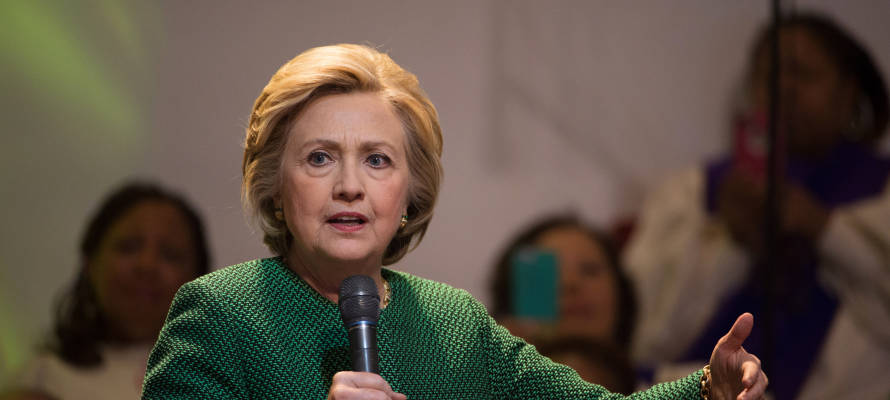The movement to boycott Israel is “counterproductive to the pursuit of peace and harmful to Israelis and Palestinians alike,” Democratic presidential frontrunner Hillary Clinton wrote in an open letter on Monday, one day before her church was set to vote on whether to divest from companies that allegedly profit from Israel’s control of Judea and Samaria.
While Clinton did not specifically mention the United Methodist Church’s vote in her letter to leaders of the Israel Action Network and the Jewish Federations of North America, she reiterated her opposition to the Boycott, Divestment, and Sanctions (BDS) campaign, which is behind the divestment proposal. “I believe that BDS seeks to punish Israel and dictate how the Israelis and Palestinians should resolve the core issues of their conflict. This is not the path to peace,” Clinton wrote. She also stated that “we need to make countering BDS a priority, and that we need to work together—across party lines and with a diverse array of voices—to reverse this trend with information and advocacy, and fight back against further attempts to isolate and delegitimize Israel.”
Beyond opposing boycotts, Clinton reiterated her admiration for Israel, emphasizing her past support as secretary of state and future support if she is elected president.
As Senator and Secretary of State, I saw how crucial it is for America to defend Israel at every turn. I have opposed dozens of anti-Israel resolutions at the UN, the Human Rights Council, and other international organizations. I condemned the biased Goldstone Report, making it clear that Israel must be allowed to defend itself like any other country. And I made sure the United States blocked Palestinian attempts at the UN to unilaterally declare statehood. Time after time, no matter the venue, I have made it clear that America will always stand up for Israel. If I am fortunate enough to be elected president, the United States will reaffirm we have a strong and enduring national interest in Israel’s security. …
Israel is a vibrant democracy in a region dominated by autocracy, and it faces existential threats to its survival. Fighting for Israel isn’t just about policy; it is a personal commitment to the friendship between our peoples and our vision for peace and security. Particularly at a time when anti-Semitism is on the rise across the world, we need to repudiate forceful efforts to malign and undermine Israel and the Jewish people. Anti-Semitism has no place in any civilized society—not in America, not in Europe, not anywhere. We must never tire in defending Israel’s legitimacy, expanding security and economic ties, and taking our alliance to the next level.
Clinton used similar language in her speech at the AIPAC Policy Conference in March,saying that “we have be united in fighting back against BDS,” particularly “at a time when anti-Semitism is on the rise across the world, especially in Europe.”
More than a thousand proposals are set to be considered at the Methodists’ quadrennial General Assembly. Four of the resolutions call for divesting from Hewlett-Packard, Motorola, and Caterpillar, among other investments.
The BDS campaign seeks to stigmatize and isolate Israel socially, economically, and politically until it accedes to a number of unilateral Palestinian demands. Critics of the campaign have accused it of being discriminatory in tone and intention, and pointed out that many of its leaders have publicly affirmed that they seek Israel’s destruction. BDS co-founder Omar Barghouti, an opponent of the two-state solution, said in 2014 that Palestinians have a right to “resistance by any means, including armed resistance,” while leading activist As’ad Abu Khalil acknowledged in 2012 that “the real aim of BDS is to bring down the state of Israel.”
France’s high court last year ruled that BDS was a form of hate speech.
By: TheTower.org
